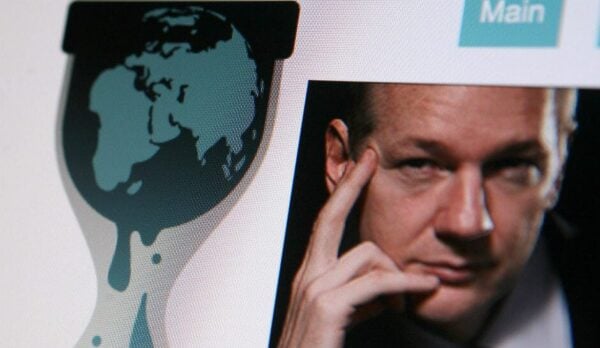A judge in the Eastern District of Virginia heard arguments that the charges against WikiLeaks founder Julian Assange should be unsealed, but no decision was reached.
Judge Leonie Brinkema, who was appointed by Clinton in 1993, heavily sided with the government’s arguments against making any potential charges public prior to his arrest. She agreed to allow both sides to bring in additional material next week.
In what appears to have been a copy and paste error in a filing, it was revealed last week that the Justice Department had filed secret charges against Assange. The Reporters Committee for Freedom of the Press promptly filed a lawsuit seeking access to any criminal complaint, indictment or other charging documents relating to the case.
“This is an interesting case to say the least,” Judge Brinkema began before reading the erroneous filing out loud to the court.

“I think it’s those last few words — the fact that Assange has been charged — that bring us here today,” the judge stated, while noting that the filing was clearly an error.
The judge stated that the government has admit that Assange is under investigation, to which the prosecutor chimed in and said that it is public that there is an investigation into WikiLeaks and leakers — but that there has never been a public claim that Assange himself is under investigation.
“Everyone knows where he is, so what’s the rationale for keeping it under seal?” Judge Brinkema asked.
The US government argued that the press and the public have no right to know what the charges against the publisher actually are. He explained that he would be willing to provide more information in a closed setting — if and when Assange is charged.
The Reporters Committee for Freedom of the Press argued that it’s already been made clear that Assange is under investigation multiple times — citing Pompeo calling WikiLeaks a “hostile intelligence service,” Pence’s meeting with the Ecuadorian President, and the referencing of “organization 1” in the Mueller indictment.
“Inadvertent or not, it confirmed what the public already knew,” their lawyer said of the erroneous filing.
The judge argued that “there’s no question the public has a right to see charging documents, but that right doesn’t apply before an arrest has been made.” She argued that sealed charges reduce flight risks as well as the risks to arresting officers safety — which overrides the First Amendment right of access.
The Reporters Committee countered that while that may have applied prior to the erroneous filing, Assange clearly already knows now that he has been charged — therefore the argument no longer meets the burden.
Ultimately, no decision was made and the judge asked the committee to find one case where the government was compelled to disclose charges prior to arrest.
The court will reconvene in one week.
The nature of the charges are very important for members of the press to understand going forward however — as the criminalization of reporting things the government doesn’t want the public to know is an extremely dangerous path that could open up many mainstream outlets to similar persecution.
Assistant U.S. Attorney Kellen S. Dwyer previously stated that the charges “would need to remain sealed until Assange is arrested in connection with the charges in the criminal complaint and can therefore no longer evade or avoid arrest and extradition in this matter,” according to a report from Bloomberg.
Assange is an award-winning publisher who has provided more insight into the internal workings of governments around the world than any legacy media outlet. Though his methods may be unique, all journalists rely on leaks, scoops and secrets to do their reporting — he just happens to be better at it than anyone else. His prosecution is likely to chill sources providing real, raw, information that can help the public to make informed decisions about their government.
As Matt Taibbi recently wrote in a must read op-ed for Rolling Stone, “the more likely eventuality is a prosecution that uses the unpopularity of Assange to shut one of the last loopholes in our expanding secrecy bureaucracy. Americans seem not to grasp what might be at stake. Wikileaks briefly opened a window into the uglier side of our society, and if publication of such leaks is criminalized, it probably won’t open again.”
